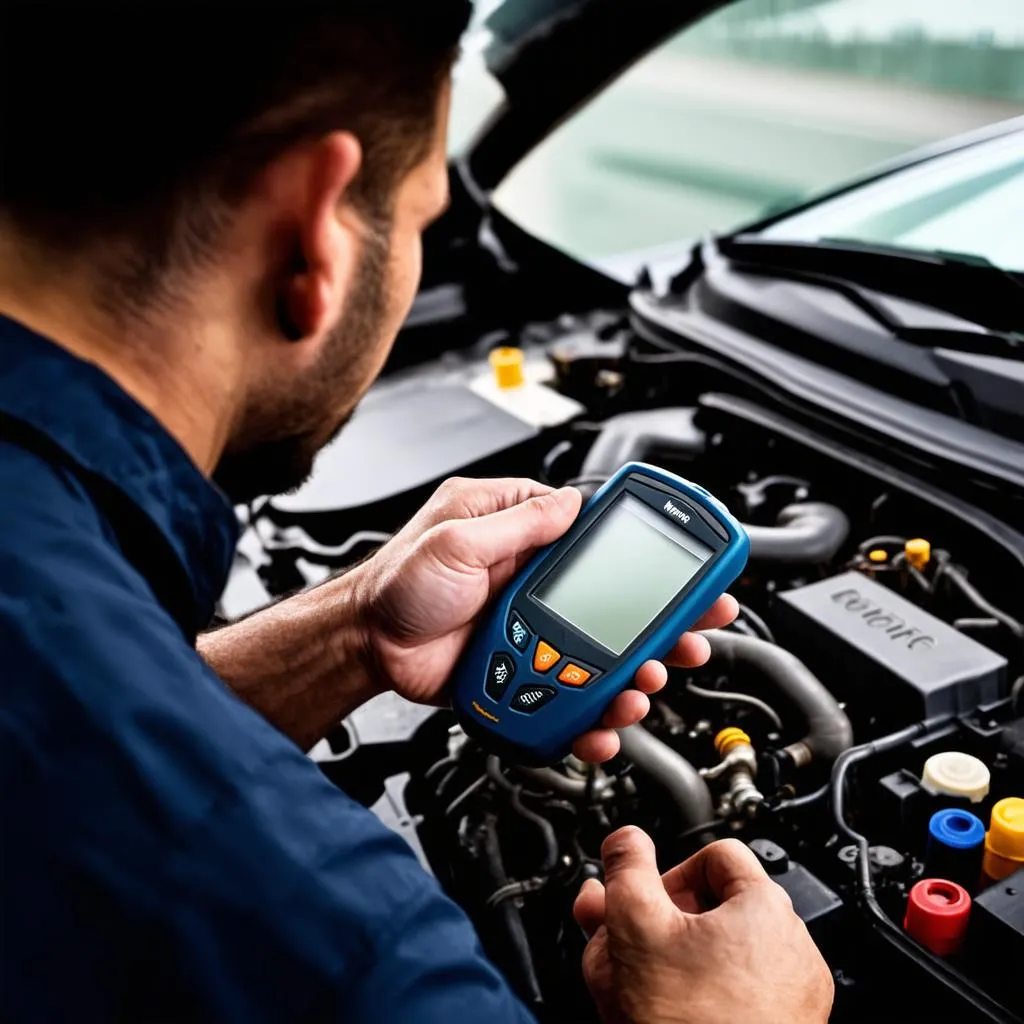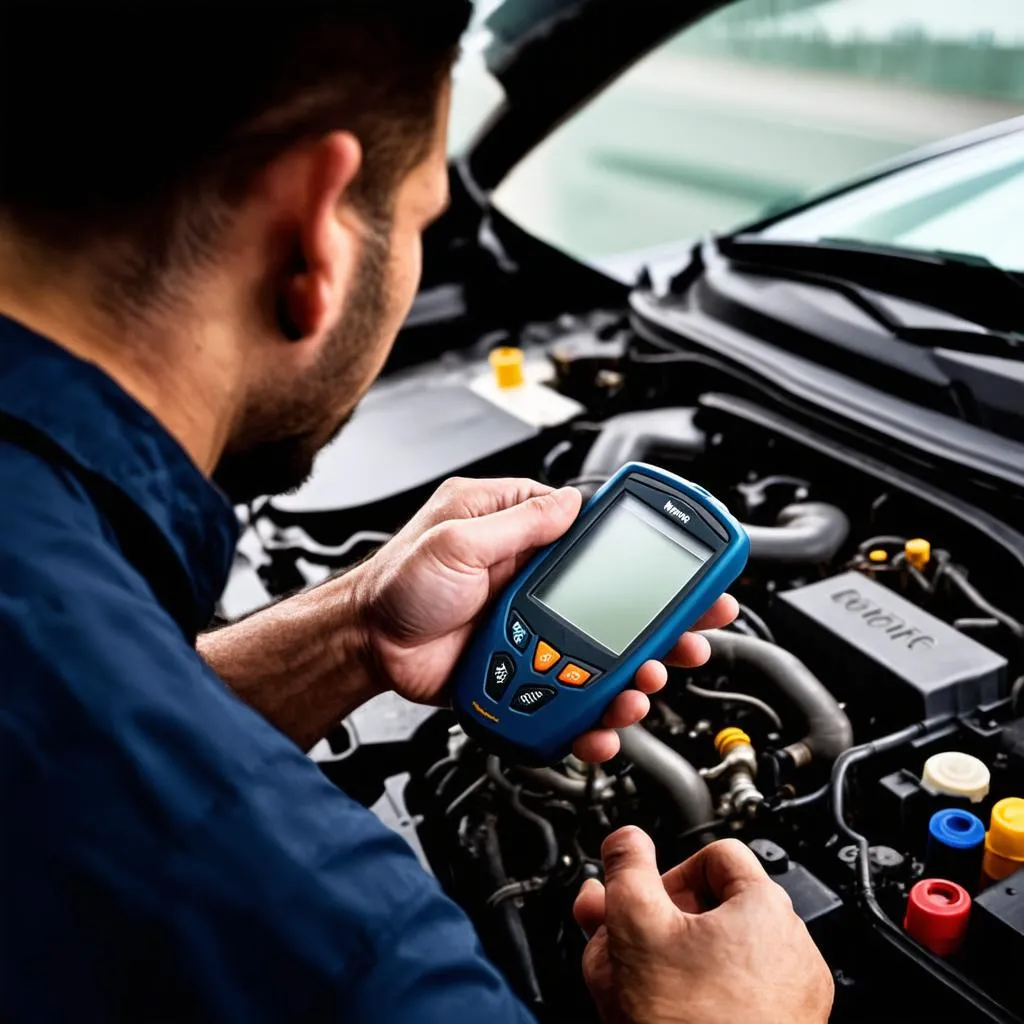“My Check Engine light came on yesterday, and I’m freaking out!” Ever felt that pang of anxiety when your trusty Chevy throws a code at you? It’s like your car is speaking in a foreign language, and you’re left scrambling for a translator. Well, consider this your official code-cracking guide for the dreaded P1133.
Just the other day, a friend called me, panic in his voice. “My Silverado is acting up,” he exclaimed, “and this code P1133 popped up. What does it even mean?” We’ve all been there. That yellow light is enough to make even the calmest driver break a sweat. But fear not, understanding this code is your first step to getting back on the road.
Decoding the Mystery: What is Chevy OBD Code P1133?
In simple terms, the P1133 code points to a problem with your car’s air-fuel mixture. More specifically, it means the engine control module (ECM) has detected that the air-fuel ratio in Bank 1 Sensor 1 is running too lean.
Think of it like this: your engine needs the perfect balance of air and fuel to run smoothly, just like a good cake needs the right proportions of ingredients. Too much air (a lean mixture) and things start to sputter, just like our friend’s Silverado.
Why Should You Care About a Lean Air-Fuel Mixture?
A lean air-fuel mixture might sound harmless, but it can lead to several issues, including:
- Reduced Engine Performance: Your Chevy might experience sluggish acceleration, rough idling, or even misfires.
- Increased Emissions: A lean mixture burns hotter, potentially damaging your catalytic converter and increasing harmful emissions.
- Poor Fuel Economy: Contrary to what some might think, a lean mixture doesn’t necessarily mean better mileage. In fact, it can lead to decreased fuel efficiency.
Common Causes of P1133 Code
Now that you understand the “what,” let’s dive into the “why.” Several culprits can trigger the P1133 code, including:
- Faulty Oxygen Sensor (Bank 1 Sensor 1): This sensor acts like your engine’s taste buds, monitoring the air-fuel mixture. A faulty sensor might send incorrect data to the ECM, leading to an inaccurate diagnosis.
- Vacuum Leaks: Just like a leaky straw can ruin your milkshake experience, even a tiny vacuum leak can disrupt the delicate air-fuel balance in your engine.
- Fuel System Issues: Low fuel pressure, a clogged fuel filter, or a malfunctioning fuel injector can all contribute to a lean mixture.
- Mass Air Flow (MAF) Sensor Problems: The MAF sensor measures the amount of air entering the engine. A dirty or faulty sensor can give incorrect readings, confusing the ECM.
Troubleshooting and Fixing the P1133 Code
Before you rush to the mechanic, here are some steps you can take to troubleshoot the issue:
- Check for Vacuum Leaks: Carefully inspect all vacuum hoses and connections for cracks, loose clamps, or damage.
- Inspect the Air Intake System: Ensure there are no obstructions or leaks in the air filter, intake manifold, or throttle body.
- Check Fuel Pressure: Use a fuel pressure gauge to check if the fuel pressure is within the manufacturer’s specifications.
- Clean or Replace the MAF Sensor: If the MAF sensor is dirty, try cleaning it with a specialized MAF sensor cleaner. If cleaning doesn’t resolve the issue, you might need to replace the sensor.
Seeking Professional Help
If you’re uncomfortable performing these checks yourself, or if the problem persists, it’s best to consult a qualified mechanic. They have the expertise and tools to diagnose and fix the issue accurately.
FAQs About Chevy OBD Code P1133
Q: Can I still drive my car with the P1133 code?
While you might be able to drive for a short distance, it’s not recommended. Driving with a lean air-fuel mixture for extended periods can damage your engine and catalytic converter.
Q: How much does it cost to fix the P1133 code?
The cost of repair depends on the underlying cause. A simple fix like replacing a vacuum hose might cost under $100, while replacing a faulty oxygen sensor or fuel pump can cost several hundred dollars.
Need Help with Your Chevy Diagnostics?
 OBD Scanner
OBD Scanner
We understand that dealing with car troubles can be stressful. At TechCarUSA, we’re here to help! If you need assistance with your Chevy diagnostics or have any questions about OBD codes, our team of automotive experts is available 24/7 to provide support. Contact us on WhatsApp at +84767531508, and let us help get you back on the road safely and confidently.
Keep Exploring TechCarUSA
For more helpful tips, in-depth articles, and expert advice on all things automotive, be sure to explore other resources on TechCarUSA. We’re your one-stop shop for automotive knowledge and support!

